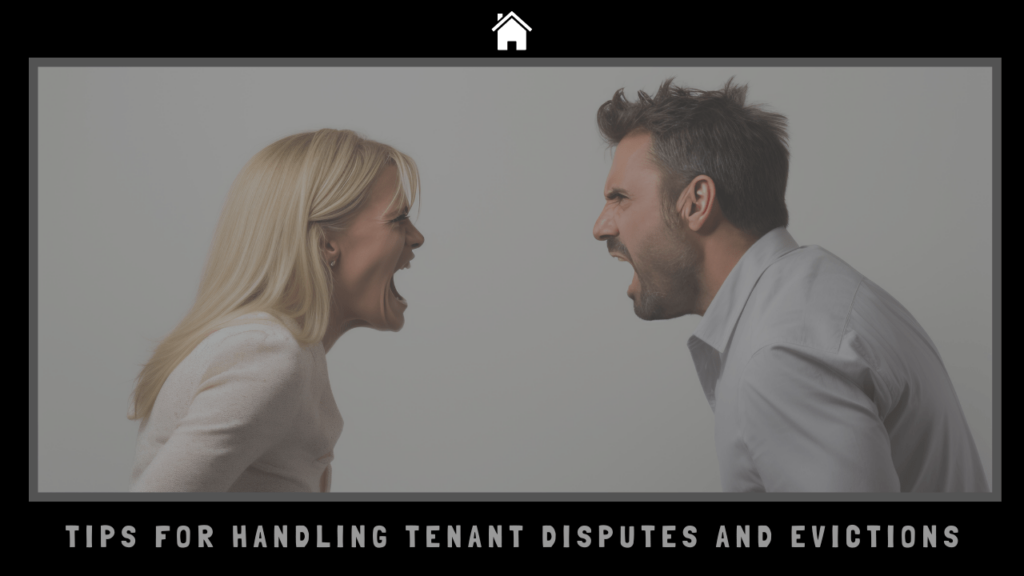
Disputes and conflicts are never the best part of property management. When you’re renting out a home in Santa Rosa, you’re hoping for a smooth and peaceful tenancy, where there’s trust, transparency, communication, and a respect for the lease agreement and its corresponding rules and expectations.
Things happen.
When you find yourself needing to handle a tenant dispute or even an eviction, make sure you remain professional. It can be difficult not to get emotionally invested in the situation, but an emotional response will only escalate an already precarious conflict.
As professional property managers in Santa Rosa, we are responsible for managing all tenant relationships on behalf of the owners and investors who entrust us with their properties and their residents. We’ve found that active listening, a bit of empathy, and a strict adherence to the lease agreement and the landlord/tenant laws in California can help us work through nearly any problem that may arise with our residents.
Here are some of our best tips for handling tenant disputes in Santa Rosa. We’ll also talk about evictions, which are a special case and need careful, legally compliant attention.
Resolving Tenant Disputes and Conflicts
Dealing with these difficult tenant situations can be stressful, time-consuming, and even expensive. You’re hoping to provide a positive tenant experience whenever you can, but disputes are sometimes inevitable, no matter how willing you are to work with your residents. You’ll want to address them professionally and efficiently.
First, do whatever you can to understand the situation. Ask your tenant to explain everything from their perspective. Gather the facts. Speaking to all parties involved will help you get a comprehensive and complete picture of what may be going on.
This is where active listening will be especially important. Carefully listen to their account and what they have to say. Document everything. Take note of the date, time and location the incident occurred, if there’s a specific incident about which they’re complaining. Note the parties involved, the nature of the dispute, and any actions taken by the parties involved.
If it’s a dispute or a conflict that your tenant has with you, be willing to listen. Repeat what you’ve heard so your tenant feels like they’ve been acknowledged and validated, even if don’t agree with their perception of events or feelings.
You won’t always be able to resolve a dispute or solve a problem. But, if you’re willing to listen and explore potential solutions, your tenants will appreciate your willingness to make the effort.
Be Objective and Communicate During Disputes
It is crucial to be objective when investigating a conflict, even if their problem is with you.
Avoid taking sides or being biased if there’s a dispute involving two residents. Instead, focus on finding a resolution that is fair to both parties. Ensure that you follow the requirements and guidelines of your lease agreement and make sure you’re treating every tenant consistently so there’s no danger that you’re violating a fair housing law.
Open communication between all parties can help resolve a conflict. As a landlord, it is essential to be calm, polite, and diplomatic when communicating with your tenants. It is important to have face-to-face interaction with your tenants to discuss their issues and hear firsthand what the problem is.
Communicate the importance of a peaceful community and focus on creating a mutual understanding between the parties. Model that behavior, too.
In some cases, complex legal disputes may require the assistance of an attorney. Knowing when to escalate a conflict and seek legal help is also crucial for landlords. You need to understand your legal rights and how best to protect your property interests. A good attorney can be a valuable resource in resolving complex disputes.
Handling Evictions in Santa Rosa
Eviction is unpleasant for everyone involved. When you get to the point that a tenant has to be evicted from your rental property, you know that all other options have been ineffective. Payment plans have not worked out, assistance has not been accessed, and the tenant has not been willing to cancel the lease agreement and move out. If you have to evict, all communication has likely broken down, and there is no other option except to remove the tenants from your property legally.
We recommend working on whatever you can to avoid eviction. It can be time-consuming and expensive, and while the ultimate result is positive; you get the problem tenant out and you can begin preparing for a new tenant, there’s still a lot of time, money, and effort that’s wasted on the eviction process.
Avoid it if you can.
If you cannot avoid eviction, make sure you know exactly what you’re doing. The laws in California are strict, especially when it comes to eviction. Tenants have a lot of protections in Santa Rosa, and you want to make sure you don’t make things worse for yourself by missing a step or violating a law.
Consider asking for help from a Santa Rosa property management company or an experienced attorney who is familiar with the eviction process and all of the requirements that come with it.
Here’s a quick guide to the steps you have to take while moving towards eviction:
- Establish Your Eviction Reason
Eviction is not an arbitrary process in California, and you need to have cause when you want to evict your tenant. If you try to evict without property grounds, your tenant could sue you for wrongful eviction. Make sure you have just cause, which is most often nonpayment of rent. If your tenant has not paid rent, you can easily begin the eviction process as long as you have the documentation you need to prove that rent has not been paid. Other reasons include violating the lease agreement, damage to the property, and conducting illegal or criminal activity inside of the property.
- Serve the Property Notice to Tenants
In California, landlords must provide a written notice of eviction to the tenant before moving forward to the court process. If you’re evicting for nonpayment of rent, you’ll want to serve a Three-Day Notice to Pay or Quit. For a lease violation, it’s a Three-Day Notice to Perform or Quit. Maybe you’ve discovered a dog that isn’t permitted in your rental property. The tenant will have three days to come into compliance or to move out before you can evict.
Ensure that your notice meets California’s legal requirements, including its format, content, date, and manner of delivery. The notice should specify the exact problem and the date by which the tenant must remedy the situation. If the tenant remains in the property and does not pay the rent or come into compliance with the lease, you are then able to proceed with filing an unlawful detainer lawsuit in court.
- File an Unlawful Detainer Lawsuit and Attend Court Hearings
Maybe your tenant will catch up with rent, take care of whatever the problem is, or talk to you about finding a solution that meets your needs and theirs. If not, and the tenant does not vacate the premises after the notice period, you are free to file an unlawful detainer lawsuit. The tenant will have a chance to respond to the lawsuit, and a court hearing will be scheduled.
Show up for court prepared. You’ll want to bring a copy of the notice, a copy of the lease agreement, and any correspondence or documentation that helps prove your case. You can bring your ledger, for example, if you’re establishing that they haven’t paid rent in two months. If you win your eviction, the tenant will be legally required to leave the property within the given timeline.
What if the tenant refuses to leave? This is potentially the worst kind of dispute. It’s anxiety-producing and difficult. If the tenant does not vacate by the date that the judge has ordered, you’ll need to get a Writ of Possession from the court, and law enforcement authorities will be scheduled to forcibly evict the tenant from the property.
Handling evictions is a complicated process that requires a lot of legal expertise. A small mistake can lead to costly legal battles and financial losses. Therefore, we always advise investment property owners to be very cautious in handling evictions. If you are unsure about your legal rights and obligations, always seek legal advice from a qualified attorney specialized in landlord-tenant law.
When you rent out a property, you’re perpetually at risk for dealing with disputes, conflicts, problems, complaints, and even evictions. While it’s never pleasant to have to deal with these things, you can prevent a bad situation from getting worse. Make sure you have a plan in place, a support team of experts who can advise you, and a way to document exactly what happens in case you find yourself explaining things to a judge.
 One of the best ways to avoid these sticky situations is by working with a local Santa Rosa property management company. We can help by managing all of these potential issues for you. Please contact us at Prestige Real Estate & Property Management. We manage homes in Sonoma County, including Santa Rosa, Windsor, Sebastopol, Petaluma, and Rohnert Park.
One of the best ways to avoid these sticky situations is by working with a local Santa Rosa property management company. We can help by managing all of these potential issues for you. Please contact us at Prestige Real Estate & Property Management. We manage homes in Sonoma County, including Santa Rosa, Windsor, Sebastopol, Petaluma, and Rohnert Park.
